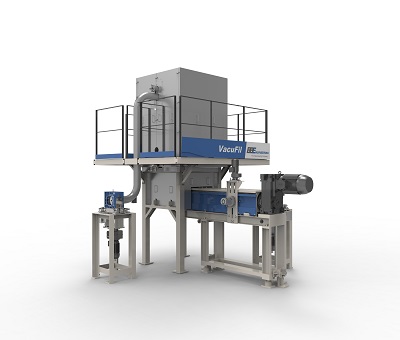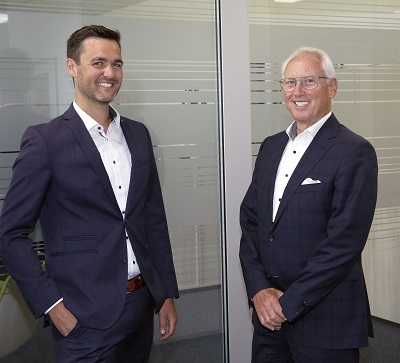Sustainable handling of natural resources is a global task, something that needs to be addressed now and not just in the future. This relates in particular to the further development of the circular economy for post-consumer or post-production waste. For this reason, the recyclability of PET products made by the man-made fibre industry is attributed special significance. For PET bottle material, the recycling of polyester materials and the possibilities for converting the waste into new high-end products within the polyester filaments, fibres and nonwovens market are state-of-the-art.
Man-made fibres and filaments made from recycled bottle flake material require corresponding single-variety collection or pre-sorting of the bottle material being recycled and comprehensive cleaning before they are shredded into polyester flakes. It is then possible to spin these flakes directly into POY filaments (DTY in the downstream process), staple fibres, nonwovens and BCF endless filaments. Today, the technology is so refined that the products achieve a quality standard that corresponds to virgin material in many applications.
However, there are also many cases in which the material quality and/or property achieved does not comply with the market requirements. For numerous textile applications, parameters such as viscosity and homogeneity are crucial and must be subject to virtually no fluctuations. In other words, to enable recycled polyester to be used here in the first place necessitates its pre-treatment. And this is carried out by the VacuFil recycling process, a BB Engineering GmbH development. The VacuFil enables the manufacture of extremely homogeneous, viscosity-stable rPET melt and hence a precisely definable and reproducible raw material for downstream processes (i.e. spinning plant). With the VacuFil, BB Engineering (BBE) has succeeded, depending on the intended end application, in aligning the melt with the process in a targeted manner. Macro- and microscopic melt homogeneity is achieved by means of homogenisation drying, controlled plasticising, gentle filtration and controlled vacuum degassing.

Visco+ filter components – the heart of the BB Engineering’s VacuFil recycling system
In the downstream processes, the melt can either be first granulated or fed directly into the end product’s manufacturing process. Recycled polyester, produced using the BBE VacuFil process, can even be used for more challenging downstream processes, including the manufacture of FDY filaments, for example. Here the material is subjected to extreme loads throughout the entire manufacturing process. In the FDY single-stage process, the filaments are drawn and taken up at speeds of up to 4,500 m/min.
Pioneer in recycling polyester
BBE is a joint venture between Brückner Group GmbH and Oerlikon Textile GmbH & Co. KG. BBE is a pioneer in the development of processes for using recycled materials, particularly polyester flakes, and converting them into contemporary, market-appropriate products for filaments, fibres and nonwovens for man-made fibre industry consumers. “Our decades of competence kicked in while we were developing the VacuFil. What Oerlikon Barmag brings to the table as a technological leader in the field of filament yarn spinning systems, BBE complements with considerable know-how in the area of extrusion and filtration and in systems construction and engineering,” states Dr. Klaus Schäfer, CEO of BBE. BBE is the exclusive supplier of extrusion filter technology for various man-made fibre industry polymers, particularly polyester, for its parent companies.
When it comes to the downstream processes with the VarioFil spinning system – the basis for spinning high-end man-made POY and FDY fibre filaments for textile and industrial applications that has been tried-and-tested for decades now – BBE is already an established manufacturer of compact and flexible systems for the man-made fibre industry. VarioFil R spinning systems have been used for converting PET regranulates and – directly – PET flakes into POY/DTY for both textile and carpet applications. And spin-dyed products made from PET recycled granulates are also being produced using VarioFil systems.
Various target viscosities and starting materials are not a problem for the VacuFil thanks to the innovative key component, the Visco+ vacuum filter. A reactor is not required. The VacuFil unites gentle large-scale filtration and swift intrinsic viscosity build-up for consistently-outstanding melt quality. The attached vacuum unit, which is automatically regulated between 1 and 30 mbar, removes volatile contamination, ensures a controlled IV increase and additionally achieves an ideal melt homogeneity, which is vital for the downstream spinning performance. Comprising an inline viscosity measuring unit connected to the vacuum system, the IV can be continuously and reliably adjusted. With their modular structure and a performance spectrum of between 300 kg/h and maximum 3,000 kg/h, VacuFil systems open up various possibilities for processing polyester waste. Bottle flakes, agglomerated spinning waste or a mixture of both can be processed into high-quality PET granulate or fed directly into downstream processes (i.e. the spinning plant). The entire recycling process is controlled and monitored by Oerlikon Barmag’s GUIDE system, guaranteeing the accustomed reliability. With an optional 3DD mixer, the market-proven mixing technology manufactured by BBE, producers can not only add additives to the melt, they can also easily change rPET ratios in the main melt from between 5 and 50 percent stream in order to comply with legal standards.

Mr. Matthias Schmitz, VacuFil Product Manager, and Dr. Klaus Schäfer, Managing Director
Customer requirements can be optimally catered for with various system configurations. “The close collaboration between the future operators of the system and our experts ensures that projects are successful. Tests carried out using authentic raw material supplied by customers in our small-scale production system guarantee a sophisticated process that complies with the mentioned requirements. With our process visualisation system, customers always have a close eye on the broad operating window and the optimum operating point. And if this is occasionally not the case, our software supplies useful process optimisation information. This saves costs and increases productivity,” explains Matthias Schmitz, VacuFil Product Manager.














